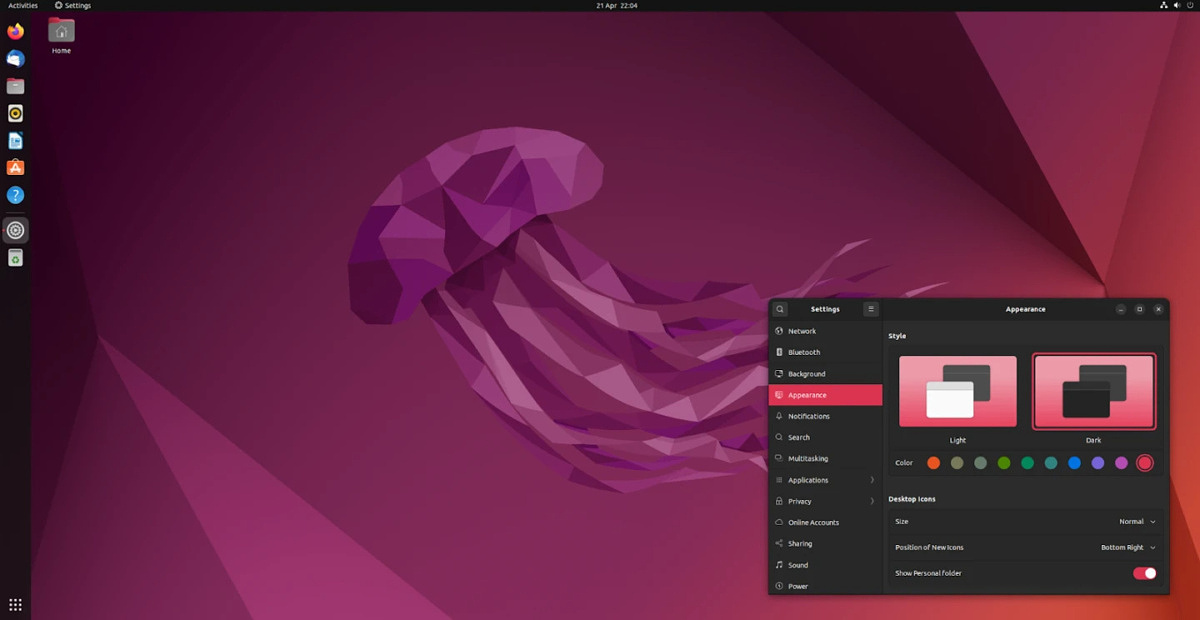Right now, Ubuntu may not be the most popular desktop Linux distribution, but it’s still one of the top choices for enterprise use, and it’s the technical foundation for projects like Linux Mint and Elementary OS. Ubuntu always has two major releases per year, and as planned, Ubuntu 22.04 LTS is now available.

Credit: Norm
Ubuntu 22.04 is a Long Term Support (LTS) release, which means it will receive five years of support with security fixes and select application updates. This means you can use it for years if you don’t want to deal with major updates regularly, or you can update to 22.10 when it becomes available in October (which won’t be an LTS release).
The main change is that Ubuntu now uses the Gnome 42 desktop environment, although as OMG In its report, it noted that some applications and features were retained to keep 22.04 as stable as possible. Gnome 42 switches to a horizontal workspace switcher and application launcher, similar to Windows 11 and macOS, and has some new touchpad gestures for moving between workspaces and windows. Canonical, the developer of Ubuntu, said the new update “could double the desktop frame rate on Intel and Raspberry Pi systems” compared to the previous version.
Smaller changes include new screenshot/screen recording capabilities, updated colors and a true dark mode in the system theme, and an improved Ubuntu Software application. The default web browser, Firefox, is now a Snap package instead of the traditional APT package. This can be controversial since Snap packages are not very popular in most of the Linux community – Linux Mint recently teamed up with Firefox to offer Mint users a non-Snap version.
Download Ubuntu
Ubuntu 22.04 is the first release to work on all Raspberry Pi 4 models when using the full desktop environment, which Raspberry Pi revealed earlier this year. It also includes the Rust programming language, OpenSSL v3, Remote Desktop Protocol (RDP), Linux kernel 5.15, and Mesa 22 graphics.
Ubuntu 22.04 is available for a variety of AMD and 64-bit x86 based PCs. Docker, WSL, and other services that provide Ubuntu images are rolling out Ubuntu 22.04.
source: Specification, OMG Ubuntu










